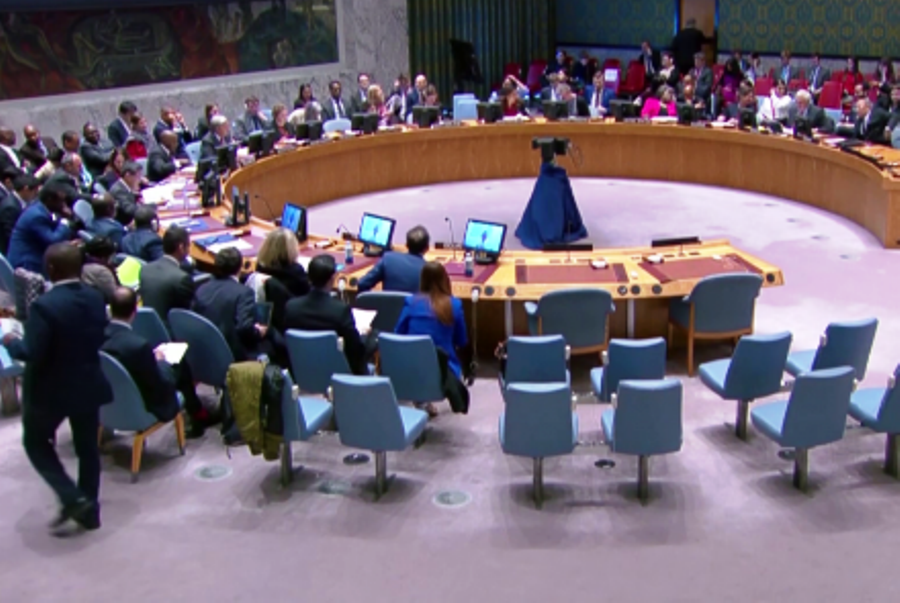American officials welcomed the United Nations Security Council (UNSC) resolution condemning the ban on Afghan women and girls in Afghanistan.
The former US special envoy for Afghanistan reconciliation, Zalmay Khalilzad, said that this resolution “reflects the global aspiration for Afghanistan, especially for Afghan women and girls.”
“I welcome the unanimous passage of this resolution by the UNSC. It reflects the global aspiration for Afghanistan, especially for Afghan women and girls. Based on international and Islamic edicts, they have the right to education and work,” Khalilzad tweeted.
The UN Security Council unanimously condemned on Thursday an Afghan interim administration ban on Afghan women working for the United Nations in Afghanistan and called on Islamic Emirate’s leaders to “swiftly reverse” a crackdown on the rights of women and girls.
The US special envoy for Afghanistan, Thomas West, the US special envoy for Afghan women, girls and human rights, Rina Amiri, and Michèle Taylor, US Permanent Representative to the UN Human Rights Council, welcomed this resolution and demanded the cancellation of the recent decisions of the Islamic Emirate regarding the work and education of women in the country.
“The UN Security Council unanimously approved a powerful resolution condemning the Taliban’s repression of half the Afghan population and pledging common cause on shared interests, including terrorism and humanitarian needs,” West said in a tweet.
“The UN Security Council resolution condemning the Taliban’s draconian repression of Afghan women & girls makes our position clear. We will not accept Taliban restrictions on the rights of over half the Afghan population. These oppressive measures must be reversed,” Amiri said on her Twitter.
“The UN Security Council unanimously condemned the Taliban’s treatment of Afghan women & girls. We call for an immediate reversal of repressive measures that hinder Afghanistan’s progress, and we stand with those impacted. It’s crucial to foster an inclusive political process, celebrating the nation’s diversity and empowering women and marginalized communities,” Taylor tweeted.
“The UN Security Council’s resolution on women’s right to education, work and activity is a positive step,” said Sayed Javad Sajadi, a university lecturer.
“Even the nations that disagree in the UN, including China, Russia, and the United States, adopted the same position in this resolution,” said Tariq Farhadi, a political analyst.
In reaction to the restrictions of the Islamic Emirate on women and girls in the country, several women took to the streets in Kabul.
They asked the international community not to remain silent against the failure to respect of women’s rights, especially women’s right to work and education.
“Our voice is the voice of the heroic Afghan women, the voice of the Afghan women who are protesting, and today the protesting movements of Afghan women have come together once more,” said a protester.
“Defending our rights is our purpose, as long as blood is in our veins,” said another protester.
In the meantime, the Islamic Emirate foreign ministry, in response to the UNSC resolution, emphasized that the prohibition of women’s work in NGOs is an internal issue of Afghanistan and has no effect on other countries.
Zia Ahmad Takal, deputy spokesman of the Foreign Ministry said that the Islamic Emirate is committed to respecting all the rights of women in Afghanistan.
“We view this problem as a domestic Afghan problem that has nothing to do with foreign countries. We are committed to ensuring women’s rights in the nation, and we want to be clear that differences should be honored and not politicized,” Takal added.
The UN Security Council resolution, which was drafted by the United Arab Emirates and Japan, was approved by the members of the Security Council on Thursday.
